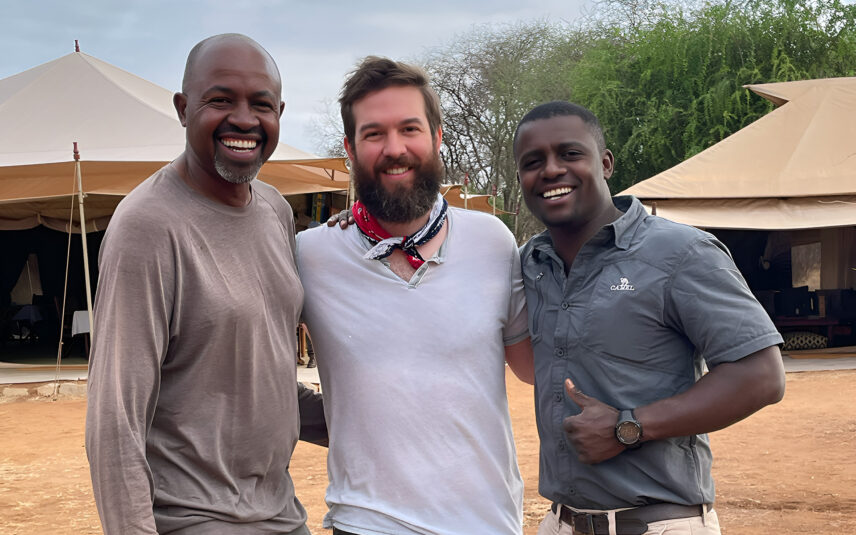In 2011, the summer between my junior and senior year of college was around the corner. I’d convinced myself I was a card-carrying adult, even though I was cruelly forced to spend eight more weeks under my parents’ roof. I needed out.
I needed a plan.
I was finishing up my bachelor’s in animal behavior and thought, “Maybe I could use this degree to my advantage” (worryingly, this was the first time the thought had occurred to me).
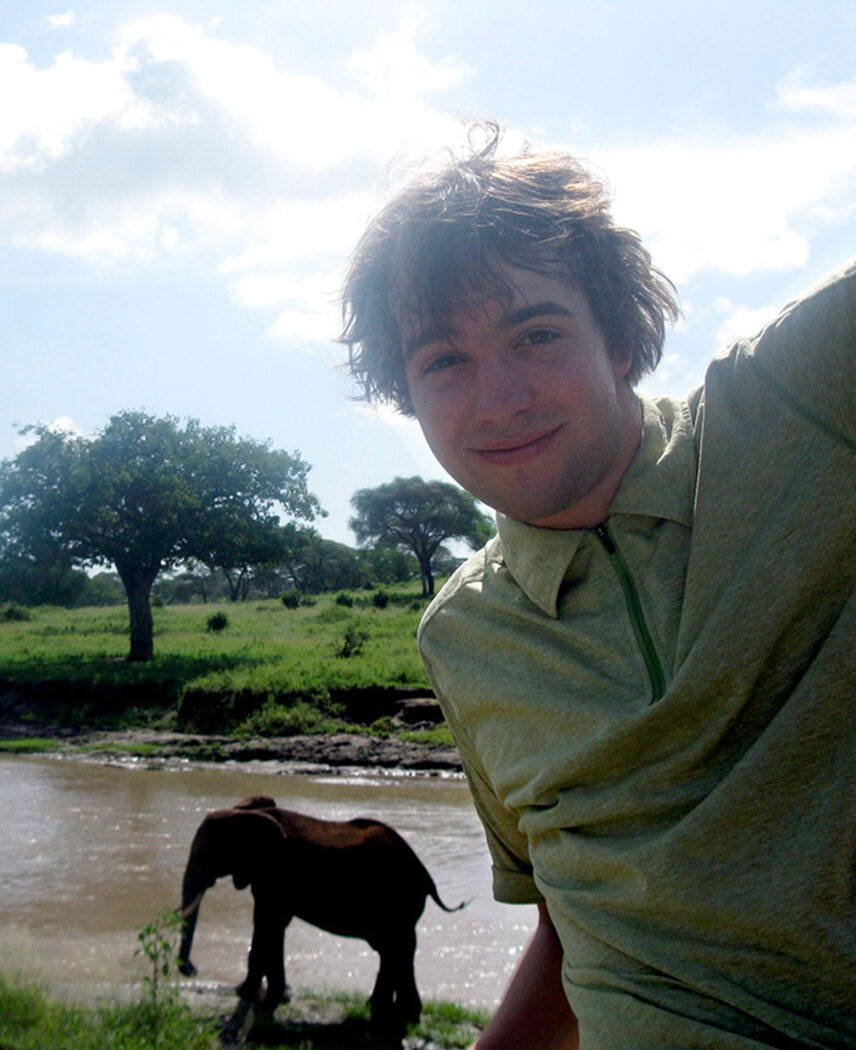
A Chance Meeting, A Wild Opportunity
I was living in Boston and, astoundingly, there was a brick-and-mortar safari business in a nearby suburb I biked by on occasion—Thomson Safaris. It turns out this operator toured guests through Tanzania—the very country I’d studied abroad in during my junior year. I sent off an email and to my surprise, I was invited in to discuss my scholastic experience in Tanzania. I did.
When my obliging audience of Thomson employees filed out of the conference room, founders Rick and Judi asked me to stay behind a minute, which meant my presentation either went very well or very similar to my presentations in the past (that is, terribly). They told me they’d recently established a conservation project in the Eastern Serengeti and needed someone with animal science training to document the wildlife presence there.
Put me in, coach!
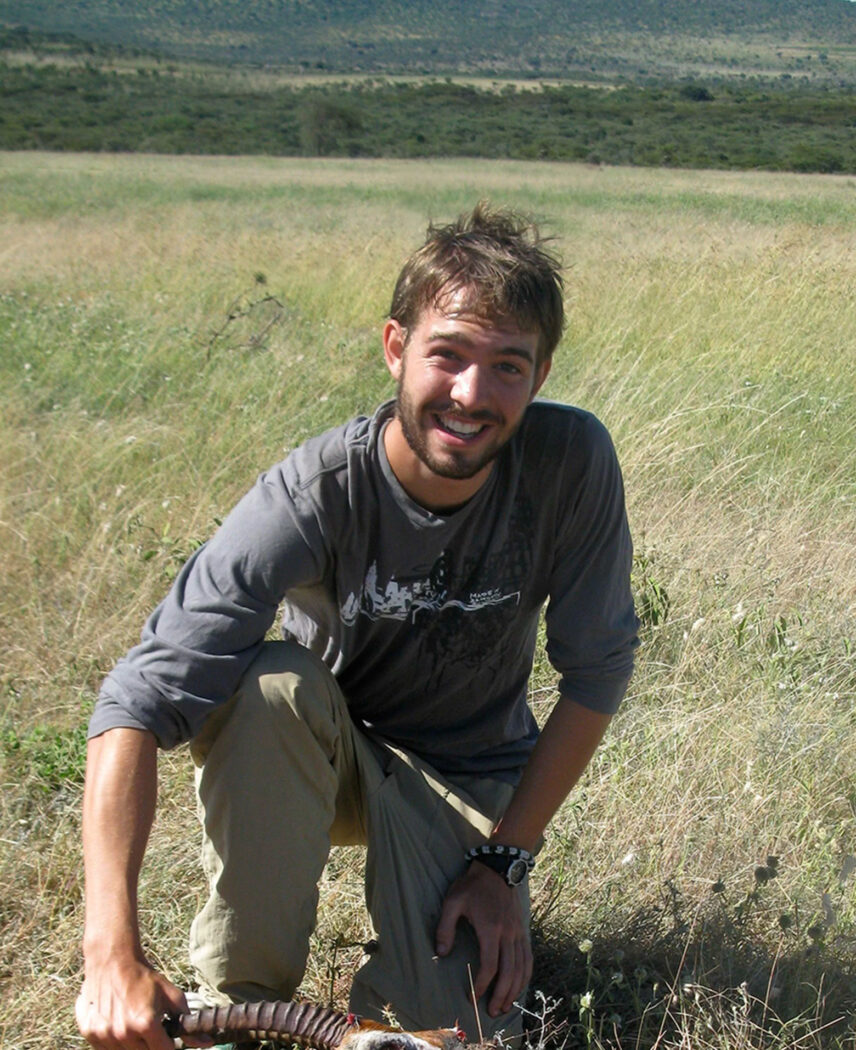
Science in the Serengeti
That summer was unlike anything I’d experienced. I was thrust back into a familiar Tanzanian environment but with unfamiliar responsibility. Each morning, I ate breakfast with a local Maasai teenager, Ema (who now works for the government in conservation), and headed out to map and inventory the Eastern Serengeti Nature Refuge.
I’d explored hundreds of square miles armed with my rangefinder, a notepad and little communication ability beyond animal impressions. I walked, counted zebras and antelope and walked some more through sun-drenched plains and riverine forests. Work didn’t seem as bad as adults made it out to be. The animal life was sparse, I concluded, but if the land was protected, the soil left undisturbed and the trees allowed to return, it had potential.
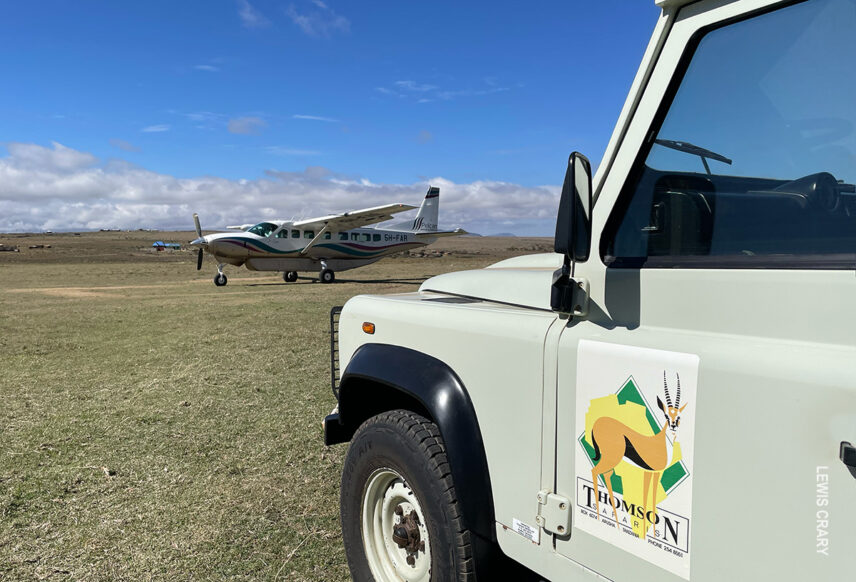
12 Years Later…
Fast forward to 2023, and I’m crossing the tarmac at Kilimanjaro International Airport, passport in hand. The night air cuts through my post-flight grogginess, and my skin tingles with anticipation. This marks my third stint in Tanzania (now with a Master’s in International Sustainable Tourism), but my first as a full-fledged safari and Kilimanjaro consultant for Thomson Safaris. I’m more excited than ever, maybe because I know what lies in store (or I think I do.)
The next day, I arrived at the Eastern Serengeti Nature Refuge, the very same place where I had conducted my animal census work 12 years earlier. It wasn’t the property I remembered. The once lifeless fields were now lush, dotted with diverse, flowering bushes and thorny acacias. Zebras and muscular eland chewed beneath their shade. A watering hole glistened 100 feet from camp, where baboons hurled verbal abuse at thirsty, unaffected giraffes.
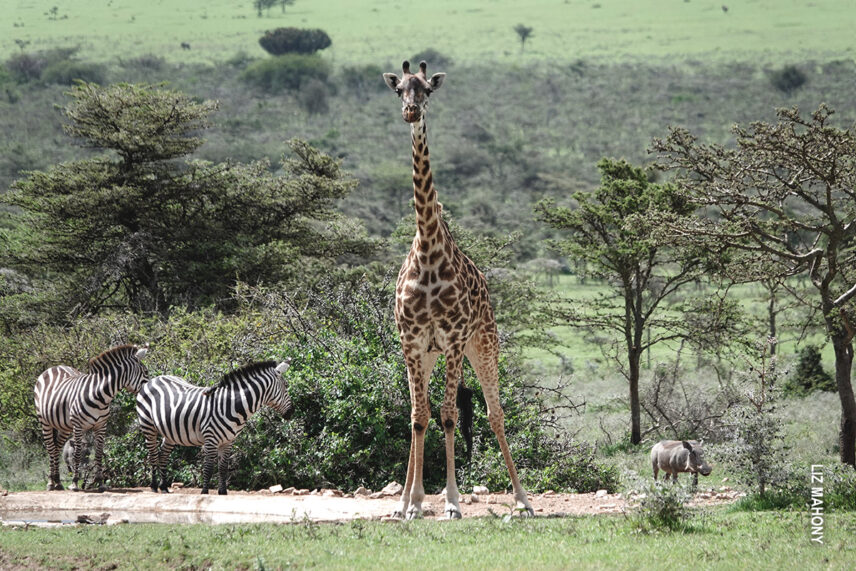
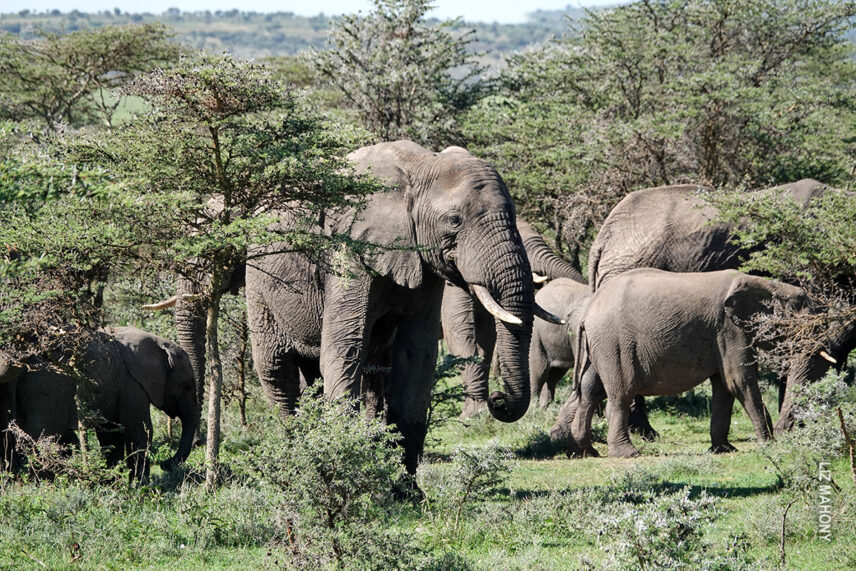
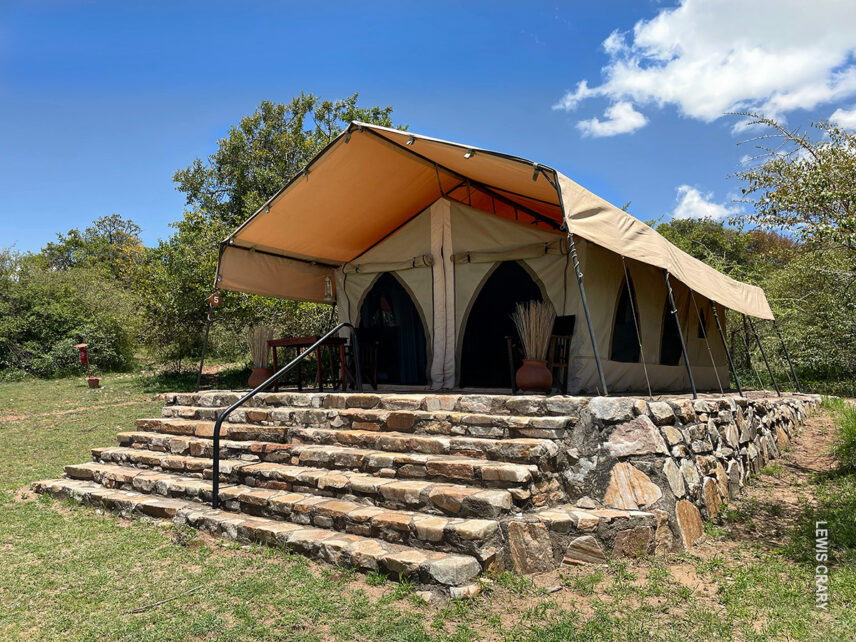
And then, the elephants.
Visible from our tents where I’d just tossed my duffle strode an armada of slow-moving giants—calves, juveniles and a long-tusked matriarch. I couldn’t believe the transformation. This land was now an Eden enriched by the presence of these discerning pachyderms.
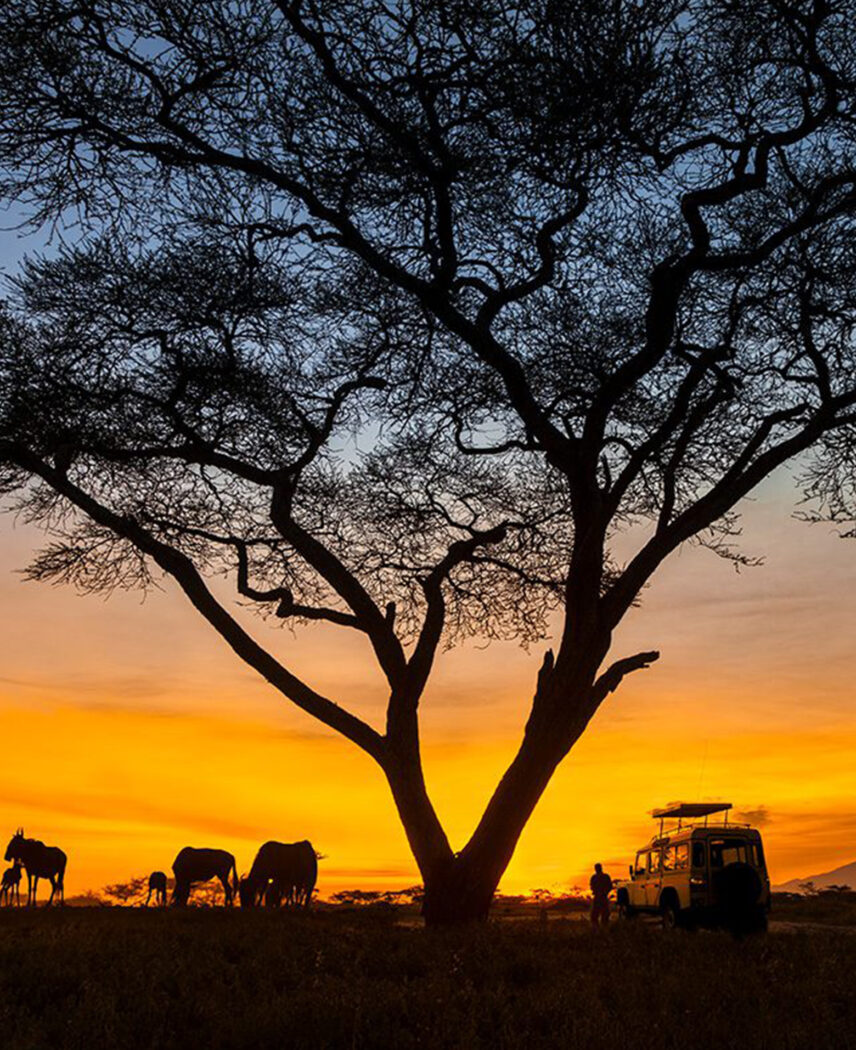
The Thomson Difference
I’m a firm believer in the Thomson Safaris approach to business. Thomson Safaris doesn’t preside over countless vacation packages spanning the globe or even a continent. They’ve chosen one beautiful country and have never stopped investing in its people and its wildlife.
All my fellow safari and Kilimanjaro consultants have been to Tanzania and can speak to every single aspect of Thomson’s mission, itineraries and sustainability initiatives. This culture of sincere understanding and love for Tanzania permeates the office in Boston and in Arusha. It’s our job to bring guests the same elation and pride I felt when I saw that elephant family strolling unbothered through the trees.
